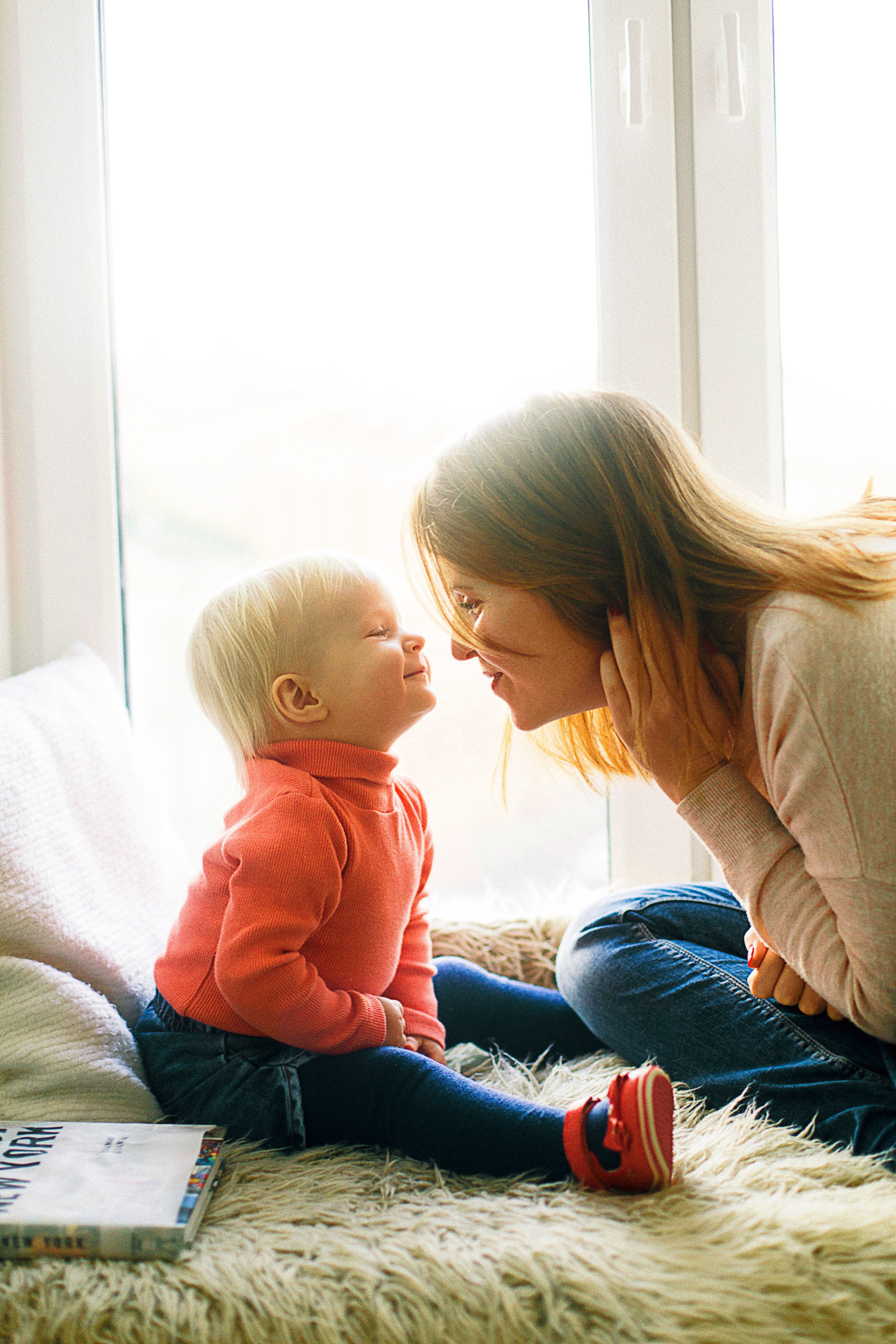
Did you know that babies under six months possess a skill that very few if any adults are capable of? No, it’s not sucking their toes…babies are capable of distinguishing every single sound pattern of every single language on the planet! They truly are born citizens of the world. The language centers of babies’ brains are so prime for new language that they are receptive to every single possible sound. As babies get closer to twelve months and start to hone in on their own native language, they begin to lose this uncanny ability to discriminate the tiny phonetic contrasts of all languages. Linguists, psychologists, and neuroscientists have studied this for decades and they now know that babies are able to crack the code on language acquisition by listening and observing from the day they are born. Your baby is not just “hearing” when you talk to him, he is listening and picking up the subtle nuances of adult speech and language.
We have known for some time that babies are great at learning language, but research is now telling us that babies are acquiring language much earlier than we thought and they are able to learn two and three languages simultaneously at a very young age. Babies who live in dual language households have a huge advantage because they can be exposed to a second or third language when their brain is most able to process, learn, and memorize the languages. Studies show that babies who are exposed to more than one language before their first birthday have higher critical thinking abilities than babies who only learn their native tongue. This critical thinking translates into better problem solving, higher level logic, better spatial skills, and higher computational skills, not to mention phonetic awareness, literacy, reading skills, and the ability to communicate in two languages!
Sadly, in America, there is somewhat of a stigma with some languages. Parents have the capacity to teach their children a second language but they only speak English to their children for fear of having their children unable to speak English in a predominantly English-speaking society. Parents, rest assured that your child will be able to learn English along with the second language. It may take a little bit longer to learn two languages, but because babies’ brains are so prime for language acquisition, she will master the languages much faster than an adult or teenager could. Parents who speak Spanish or Native American tribal languages for example could be giving their children a huge gift by exposing them to this second language from a very young age. Unfortunately, most American children do not learn a second language until they are in seventh or eighth grade and by this point, their brains are simply not as receptive as they would have been as before age five.
Even if you don’t speak a second language, you can expose your child to a second language by reading books to them or taking them to language lessons. Studies show that English-speaking babies were able to discern just as many Mandarin sounds as Mandarin babies after just 12 half hour sessions with a Mandarin coach. When babies were exposed to the same 12 half hour sessions on video, the babies had zero new learning. This proves that it has to be human interaction in order for babies to learn, but it doesn’t have to take a lot of time. Babies learn by consistency and repetition. If you are fortunate enough to know a second language, speak it to your baby every day. Encourage your baby to speak in the second language by saying, “What color is this flower? Now tell me in Spanish.” Babies pick up languages very quickly and are much better off for it!
References:
Gopnik, A. Meltzoff, A, & Kuhl, P. (1999). The Scientist in the Crib: What Early Learning Tells Us About the Mind. William Morrow and Company.
Kuhl, P. (September, 2017). Presentation at LENA Research Foundation Conference, Beaver Creak, Co.
Ramirez, N, Ramirez, R., Clarke, M., Taulu, S., & Kuhl, P. (2016). Speech discrimination in 11-month-old bilingual and monolingual infants: a magnetoencephalography study. Developmental Science. https://doi.org/10.1111/desc.12427

